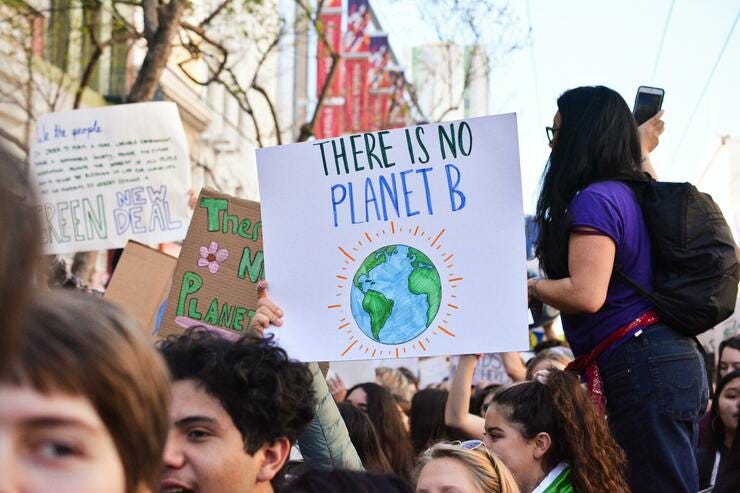Read our Latest Story on Environmental Justice Bills in Maryland - Issue #23
Environmental Justice
I had the opportunity to cover a press conference of activists that strongly encouraged state legislators to pass several climate/environmental justice bills. The article mainly covers the Transit Equity Bill. As it stands, according to Maryland Del. Sheila Ruth, the bill (HB141) should be on Gov. Larry Hogan's desk to sign into law.
Excerpt:
The bill: “Requiring that equity be considered when State transportation plans, reports, and goals are developed; altering the membership of the advisory committee on State transportation goals; requiring the Department of Transportation, in collaboration with the Maryland Transportation Administration, to conduct a transit equity analyses and consult with certain communities before announcing any reduction or cancellation of a capital expansion project in the construction program of the Consolidated Transportation Program.”
As of Tuesday, Ruth said the bill passed its second reading in the Senate on Tuesday and should have gotten a third read on Wednesday.
“If the [Transit Equity Bill] is enacted, it will help to ensure that Black and brown communities, low-income communities, and disabled riders have transportation systems designed to benefit them, bringing better access to jobs, schools, and shopping, cleaner air, and encouraging economic development in those communities,” said Ruth.
Many justice-centered organizations - CASA, Progressive Maryland, CHISPA, and Interfaith Power & Light - held a press conference in front of the Maryland State House on Friday to strongly encourage state politicians to push forward with The Transit Equity Bill.
At that press conference, Ruth said transportation is not just about getting from one place to another. She said highways that are intentionally built through Black and Brown communities significantly contribute to neighborhood pollution, leading to life-threatening outcomes.
“It has a potential for great benefit or great harm to communities,” Ruth explained. “We know the communities that get the [great] benefit aren’t, generally, the black and brown communities. Those… frontline communities often [receive] the harm of poor transportation decisions. Transit can make a big difference in people's lives, bringing access to jobs, and other community benefits of transit-oriented development, but it also helps to bring clean air.”
Ruth thanked the crowd for their advocacy for the bill.
Samuel Jordan, president of the Baltimore Transit Equity Coalition, said we must minimize emissions by reducing the number of vehicles, but build public transportation that is able to carry more people.
“The transit equity movement is also a climate change movement response movement and an environmental [justice] movement,” said Jordan. “When we talk about change and equity, we want to make it clear also that when Hogan canceled the [construction of] the redline, he was showing his allegiance to a history of segregation and division in public transportation.”
We also reported on other climate bills. Sandra Lovo, who lives in Southwest Baltimore, shared her story about living in a neighborhood with high air pollution at the press conference. She talked about the negative impact of air pollution on her community's health. She advocated for the Maryland legislature to pass these bills.
Read it here.



